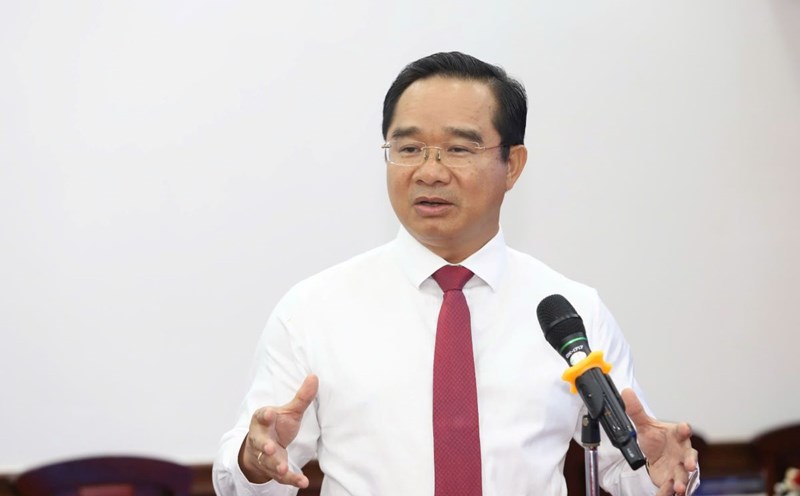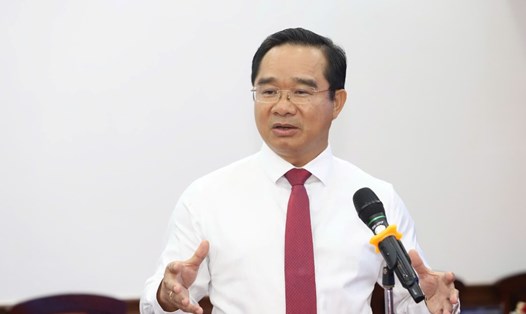On the morning of March 21, the Ho Chi Minh City People's Committee organized a scientific conference with the theme "Building a multi-purpose high-tech center in Ho Chi Minh City".
At the workshop, Chairman of the Ho Chi Minh City People's Committee Nguyen Van Duoc said that many economic experts said that the city's economy is showing signs of reaching the growth threshold in some key sectors. Without new drivers, Ho Chi Minh City is at risk of falling into a state of saturatation.
According to Mr. Nguyen Van Duoc, Ho Chi Minh City needs to take advantage of the advantages of the digital economy, digital transformation and knowledge economy to create new growth drivers. These are areas with great potential, especially when the city owns high-quality human resources and the business ecosystem is gradually taking shape.
One of the key solutions that Ho Chi Minh City is aiming for is to invest in infrastructure development, especially transportation, to expand land funds and create room for economic growth. At the same time, the government has also stepped up investment attraction in industrial parks with room for development.
Mr. Nguyen Van Duoc said that one of the models that is of special interest is the construction of a multi-purpose High-Tech Center.
Mr. Duoc proposed the development formula "1-4-1", emphasizing four strategic goals: Innovation and startup center; Artificial Intelligence (AI) research center; domestic and foreign business receiving facilities build large data centers; develop semiconductor chip technology.
The Chairman of the Ho Chi Minh City People's Committee emphasized that integrating these fields into a unified center will help Ho Chi Minh City create a leap forward, overcome the middle-income trap and enhance its competitive position in the international arena.
Director of the Department of Science and Technology of Ho Chi Minh City Lam Dinh Thang said that Ho Chi Minh City currently owns three key high-tech parks with a wide-ranging technology ecosystem in industrial parks, universities and businesses. Telecommunications infrastructure is at the top of the country, with a data system built in the past 5-6 years.
However, two major challenges arise: lack of connection and resource sharing between technology centers, along with limitations in specific policies to attract international investment.
Mr. Nguyen Ky Phung - Head of the Management Board of Ho Chi Minh City High-Tech Park, proposed that the city develop a multi-purpose High-Tech Center in the direction of an open, multi-functional ecosystem, combining technology, services and modern urban areas to compete with regional technology centers.
Mr. Vu Chi Kien - Deputy Director of the Ho Chi Minh City Institute for Development Studies, proposed two directions for developing a multi-purpose High-Tech Center: Expanding and upgrading the existing High-Tech Park or planning a new center in Thu Duc City according to the mixed-use land model, connecting with creative urban areas.
Regardless of which option is chosen, Ho Chi Minh City needs to ensure international standards on infrastructure, planning and governance, while facing challenges such as regional competition, lack of specific policies and mechanisms and large investment capital.
To be successful, Ho Chi Minh City needs to quickly issue a flexible mechanism, promote international cooperation and prioritize the development of cutting-edge technology industries including semiconductors, artificial intelligence (AI), cybersecurity, digital entertainment and consumer electronics.











